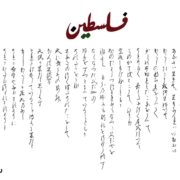ʿAbd al-Wahhāb al-Shaʿrānī’s Laṭāʾif al-Minan and the Virtue of Sincere Immodesty
The essay below analyzes the substance and rhetoric of ʿAbd al-Wahhāb al-Shaʿrānī’s (d. 973/1565) book Laṭāʾif al-minan wa-l-akhlāq (Subtle Blessings and Morals). While giving particular attention to the text’s introduction and concluding sections, in my analysis here I use the Laṭāʾif as a case study to illustrate how Sufi authors like al-Shaʿrānī attempted to relieve the tension between the antipodal Sufi virtues of, on the one hand, concealing one’s spiritual state to preserve the purity of one’s intention and, on the other, speaking openly about God’s blessings upon one as a demonstration of gratitude to God and a means to guide others along the Sufi Path. ʿAbd al-Wahhāb al-Shaʿrānī was an Egyptian Sufi and legal thinker who lived in Cairo during the fnal years of the Mamlūk Sultanate and the first half-century of Ottoman rule in Egypt. He is best remembered today for his writings in comparative Islamic law (ikhtilāf al-madhāhib), Sufi ethics, and Sufi hagiography. Several of his texts would generate controversy during his lifetime owing to what he claimed
were libelous passages that jealous peers had falsely attributed to him. 1 During his early years, al-Shaʿrānī studied Islamic law and other scholarly disciplines under Egypt’s Chief Shāfʿī Justice Zakariyyā al-Anṣārī (d. 926/1523); a charismatic and illiterate fgure named ʿAlī al-Khawwāṣ (d. 939/1532–3) served as his primary guide in the study and practice of Sufsm. 2 By the second half of his life, al-Shaʿrānī’s acumen and reputation had earned him the attention of Egypt’s Ottoman rulers, who gifted him with a Suf hospice (zāwiya) that made him independently wealthy through the revenues that it generated.









